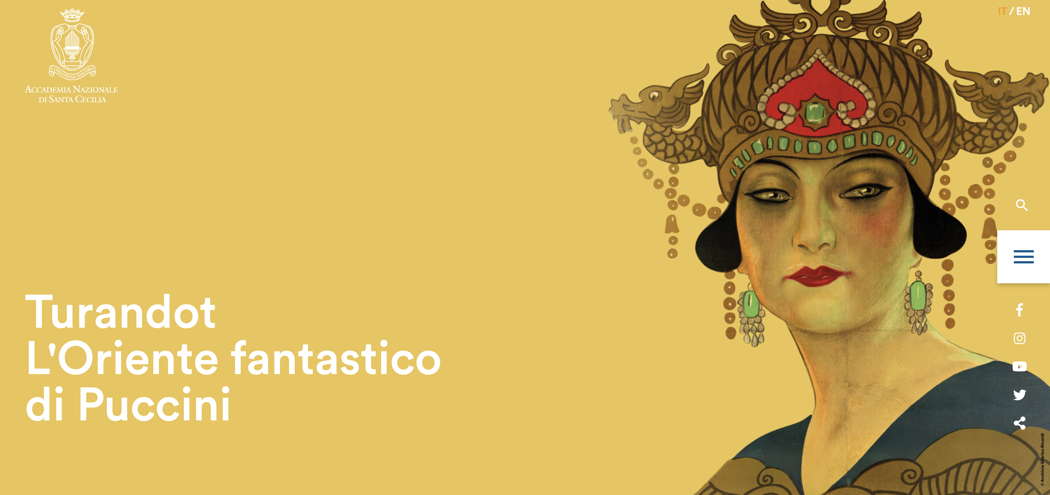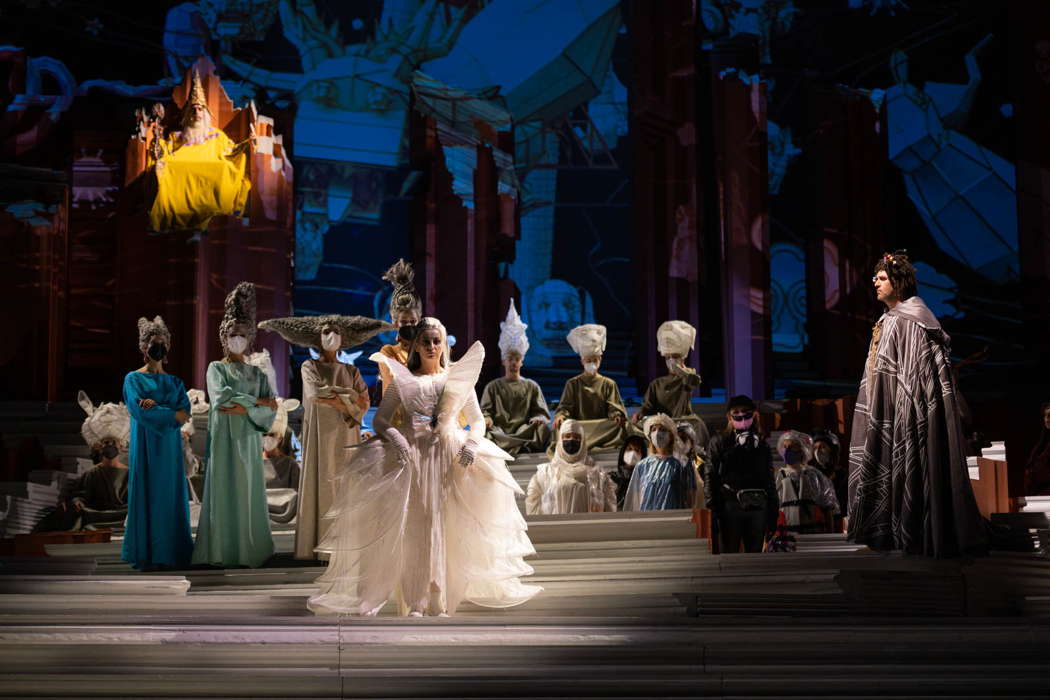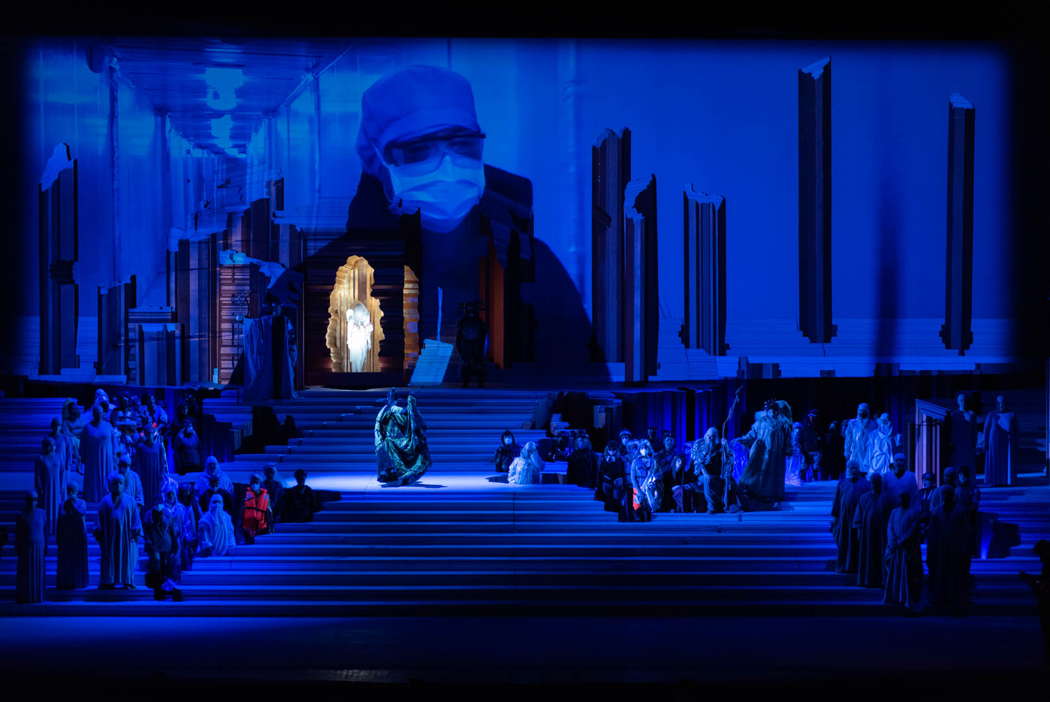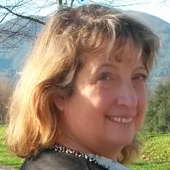- Alexander von Zemlinsky
- New York Philharmonic
- Kirsten Flagstad
- Roderic Dunnett
- Arvo Pärt
- Aase Nordmo Løvberg
- The Makropoulos Affair
- Siena
Two Performances of 'Turandot' in Rome
GIUSEPPE PENNISI attended one and saw the other on TV
I should say 'much ado about nothing'. In Rome, two different productions of Puccini's last opera were staged: Turandot. One in a concert version 'out of subscription' at the Accademia Nazionale di Santa Cecilia on the evening of 12 March 2022 and one at the Teatro dell'Opera from 22 to 31 March 2022. In Berlin, where three main opera houses operate, often two productions of the same title are staged simultaneously with different artists; no one talks about challenge, contest or anything else, as it happened in Rome.
This is especially since the musical versions of the two productions are different. The Accademia Nazionale di Santa Cecilia presented a rare Turandot with the complete ending by Franco Alfano - not the one cut, indeed shredded, imposed by Arturo Toscanini and which entered into tradition.

Online publicity for the Accademia Nazionale di Santa Cecilia's Turandot
At Teatro dell'Opera, the version that ends with the death of Liù was performed as Toscanini wanted at the first performance of the opera on 25 April 1926, just over a year after the death of the composer, who had left it unfinished - albeit with several notes about the final duet.
The two productions have, then, different purposes. That of the Accademia Nazionale di Santa Cecilia (staged with a stellar cast: on the podium Antonio Pappano, starring Sondra Radvanosky, Ermonela Jaho, Jonas Kaufman, Michele Pertusi, Leonardo Cortelazzi, Gregory Bonfatti, Siyabonga Maqungo, Mattia Olivieri) is the result of numerous rehearsals and is aimed at a Warner CD. That of the Teatro dell'Opera di Roma is centered on stage direction, scenes, costumes and videos by Chinese artist Ai Weiwei (in exile and on whose head hangs a death sentence in Beijing), considered one of the greatest masters of contemporary visuals. It should have been staged two years ago but was postponed due to COVID-19. In the pit is Ukrainian conductor Oksana Lyniv and on stage are Oksana Dyka, Antonio Di Matteo, Michael Fabiano, Francesca Dotto, Alessio Verna, Enrico Iviglia, Pietro Picone. In the performance I attended, Turandot was Ewa Vesin, Marco Spotti sang Timur and Calaf was Angelo Villlari.

Ewa Vesin as Turandot, Angelo Villari as Calaf and Rodrigo Ortiz as Altoum in Opera di Roma's Turandot. Photo © 2022 Fabrizio Sansoni
The 'cut' or the 'slant' given to the two productions is different. In that of the Accademia Nazionale di Santa Cecilia, Turandot is seen as an unrealistic fairy tale of love: the opera was composed, when the 'generation of the eighty', in controversy also with Puccini, sought for opera new anti-narrative paths, sometimes devoid of emotional or psychological involvement. At Santa Cecilia, a sumptuous reading of the orchestra, the singers, the choirs as, since I was sick, I could also enjoy on the radio. A fascinating reading of the Teatro dell'Opera not only for the visual but also for the deep political content. I was at the 27 March 2022 afternoon performance.
We need to make a recall. Mussolini aimed at being a musician (and was surrounded by two ranks of composers: the traditionalists led by Mascagni and the innovators headed instead by Casella and Malipiero). He not only financed the Teatro dell'Opera di Roma so that it was second to none, launched the Venice Contemporary Music Festival to oppose Salzburg, but he longed for a 'fascist opera' to be created. It did not go well: La favola del figlio cambiato by Gian Francesco Malipiero on a libretto by Nobel laureate Luigi Pirandello had a single performance in March 1934 by decision of the Head of Government himself who found it unseemly that an act took place in a house of tolerance.
Yet, the 'fascist opera', in terms of setting, climate, message, already existed: the unfinished Turandot by Giacomo Puccini, card No 2 of the National Fascist Party of Lucca and Viareggio and the first composer to meet the Duce. As mentioned, new musical trends lent themselves to experimentation. In this context, among the authors of the past, Carlo Gozzi was rediscovered with his 'theatrical fairy tales' that were juxtaposed with Goldoni's bourgeois comedy. Gozzi, moreover, had been with La donna serpente (later revived by Casella), a source of inspiration for Wagner's first opera, Die Feen, which in Italy was staged only in 1998 in Cagliari.
After examining various possibilities, Puccini (and his librettist Giuseppe Adami) set their sights on Turandotte, which takes place 'in Beijing at the time of fairy tales' but which is Gozzi's only work in which magic is not used. Another Italian composer, resident in Germany, Ferruccio Busoni, had worked on the same text. Busoni's opera, which had debuted in Zurich in 1917 – is rarely performed in Italy; I had the good fortune to see it at the Verona Philharmonic in April 1980 as well as in Cagliari in 2017. There is a third Turandot, a grand opéra padano by Antonio Bazzini that debuted at La Scala in 1876 and was soon forgotten.
The comparison between Busoni's Turandot and Puccini's opera shows the difference in political framework. Busoni follows Gozzi quite a bit, entrusting an important role to the Emperor (who in Puccini is little more than a co-primary) and maintaining the masks of the commedia dell'arte - Brighella, Tartaglia and Truffaldino who, in Puccini, become Ping, Pang and Pong. Busoni worked about sixteen years on a piece in two acts, highly stylized and full of irony in an artificial world populated by grotesque or fairy tale characters in which he makes fun of any form of power. In Busoni, the Princess is just a capricious little girl.
Puccini's treatment is very different. First, there's a large orchestra, wide use of the chorus and echoes of Debussy and of Chinese music too. It is essentially late Romantic writing like Korngold or Schreker. The totalitarianism that reigns in Beijing (in the hands of the Princess) is accepted, if not seen with benevolence even by the opponents - moreover defeated and who would be considered 'inferior' if there were no sacrifice of Liù or the challenge and final victory of Calaf. Totalitarianism is considered essential because in it 'the people of Beijing' have their own freedom vis-à-vis the Tatars. It is, then, a 'benevolent' totalitarianism: in the finale, which Puccini never managed to set to music, the hardness of Turandot - the result of an offense made to her 'ava' and her Nation or 'about a thousand years and a thousand' - 'melts' in joy for all. There is also a stern look at bureaucracy and bourgeoisie, personified precisely by Ping, Pong and Pang.
We will never know why Puccini did not set to music the 'thaw' of the Princess. However, the overall socio-political design was clear and summed up in the Vincero!
Ai Weiwei is clearly in opposition to this totalitarian framework: we see the COVID hospital halls, the Hong Kong riots and their repression - a visually fascinating spectacle.

A scene from Opera di Roma's Turandot. Photo © 2022 Fabrizio Sansoni
The only flaw, in my opinion, is to comment on 'the little house in Honan' and its 'blue lake' with images of Venice, Paris and Rome. From a musical point of view, there are two excellences: the punctual and vigorous conducting of Oksana Lyniv and Francesca Dotto in the part of Liù. This is in addition to the choir prepared by Roberto Gabbiani.
Copyright © 30 March 2022
Giuseppe Pennisi,
Rome, Italy

ARTICLES ABOUT THE ACCADEMIA NAZIONALE DI SANTA CECILIA
ARTICLES ABOUT TEATRO DELL'OPERA DI ROMA




